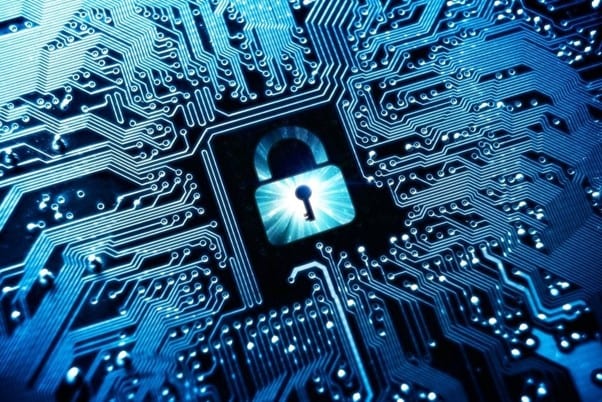Data security and privacy have increasingly become paramount among businesses of every size. With organizations collecting and retaining increasing amounts of sensitive data, secure data disposal practices are of utmost importance than ever. Improper disposal can open you to data leaks, fines from regulators, and loss of customers’ trust. Here, we discuss the importance of data disposal and explain different ways of securely handling sensitive data. We also discuss what you can do with the best tools fitting your business needs.
Why You Should Get Rid Of That Data
Every organization has data, such as log data on customer records, financial records, internal documents, etc. How you manage this data (especially at the end of life) is going to be key. Apart from being a best practice, secure data disposal is legally required for several industries. One important way to ensure that information is securely erased after it becomes unnecessary is to use a hard disk scrubber because they can keep sensitive information from being retrievable or abused.
Securing Private Data
Secure data disposal primarily means securing sensitive information and ensuring that data is discarded safely and securely when no longer required. This is critically important in many industries that frequently process personal data, like healthcare, finance, and retail.
Compliance with Regulations
Various regulations like the General Data Protection Regulation (GDPR) and Health Insurance Portability and Accountability Act (HIPAA), demand organizations to protect sensitive data and dispose of it properly. Failure to comply can result in high monetary fines and legal consequences. By successfully adhering to all these regulations, acceptable data disposal practices protect an organization against penalties.
Mitigating Data Breaches
Data breaches can devastate the organization, causing loss of funds, a reputational crisis, and the disappearance of customer trust. Secure data disposal drastically lowers a company’s breach risk. You need to be proactive in your data management to make certain that any unnecessary data is properly purged.
Ways to Permanently Destroy Data
Luckily, an organization can use a few methods to discard all data, with pros and cons. Let’s take a look at some of the most standard methods:
Data Deletion and Overwriting
It’s not enough to delete files from a hard drive, as this does not mean the data is gone forever. Lost files can often be rescued through data recovery products. Hence, it is crucial to use techniques that overwrite the existing data with random values several times. Rehabilitation becomes nearly impossible by this process. A hard disk scrubber is perfect for this type of task since it will make the overwriting process automatic and is a secure way to delete data.
Degaussing
Degaussing is a technique that utilizes a magnetic field to disrupt the magnetic properties of a storage device and make it impossible to retrieve the data. It is particularly well suited for old-fashioned magnetic hard drives but not for solid-state drives (SSDs). Degaussing provides an inexpensive alternative for organizations that must ensure that the data is destroyed beyond recovery but where it is not possible, practical, or cost-effective to destroy the devices themselves.
Physical Destruction
The most fail-safe method of data disposal, however, is physical destruction. This includes shredding, crushing, or burning the storage devices where data is stored to ensure that no information can be retrieved. Though this method is foolproof in ensuring that data cannot be recovered, it isn’t useful in some scenarios, particularly for devices you still use. Companies must evaluate whether this form works for them.
Guidelines When Getting Rid Of Data
Organizations can do this by applying some of the following best practices to improve their data disposal processes:
Data Disposal Policy
A thorough data disposal policy is essential for instructing employees on handling and disposing of vulnerable information. The policy should also detail processes to determine what data no longer needs to be retained, how such data should be disposed of, and who is responsible for compliance.
Conduct Regular Audits
Routine statistical testing of where data is stored can alert organizations to tools and information that need to be discarded. Organizations can effectively manage their data by maintaining an inventory of all storage devices and their data statuses. This methodology could ensure the early and proper disposal of sensitive information.
Educate Employees
One must impart training to the employees regarding data security and disposal. Employees need to know potential dangers that can arise from inappropriate data management and how to properly dispose of data safely. Conducting periodic training can help develop a culture of security in the organization.
Choose the Right Tools
Choosing the proper data destruction tools is very important. Companies can search for appropriate solutions that meet their needs, such as software with hard disk scrubbing and hardware they can buy for physical destruction. Tool selection must also include compliance requirements, usability, and efficiency.
Conclusion
Amidst increasing data breaches and privacy issues today, secure data disposal is an integral part of the data management strategy of any organization. The importance of data disposal and effective methods to dispose of your data to prevent data violation for business Data disposal is one of the essential processes businesses must undertake to protect sensitive information and mitigate the risks associated with data breaches. With a hard disk scrubber as one of the data disposal methods, organizations can effectively handle their complete data lifecycle with peace of mind, protect their customers, and maintain regulations. Coupled with best practices and proper training for employees, this will make an organization more robust against data security threats, ensuring a safer digital environment for everyone.
